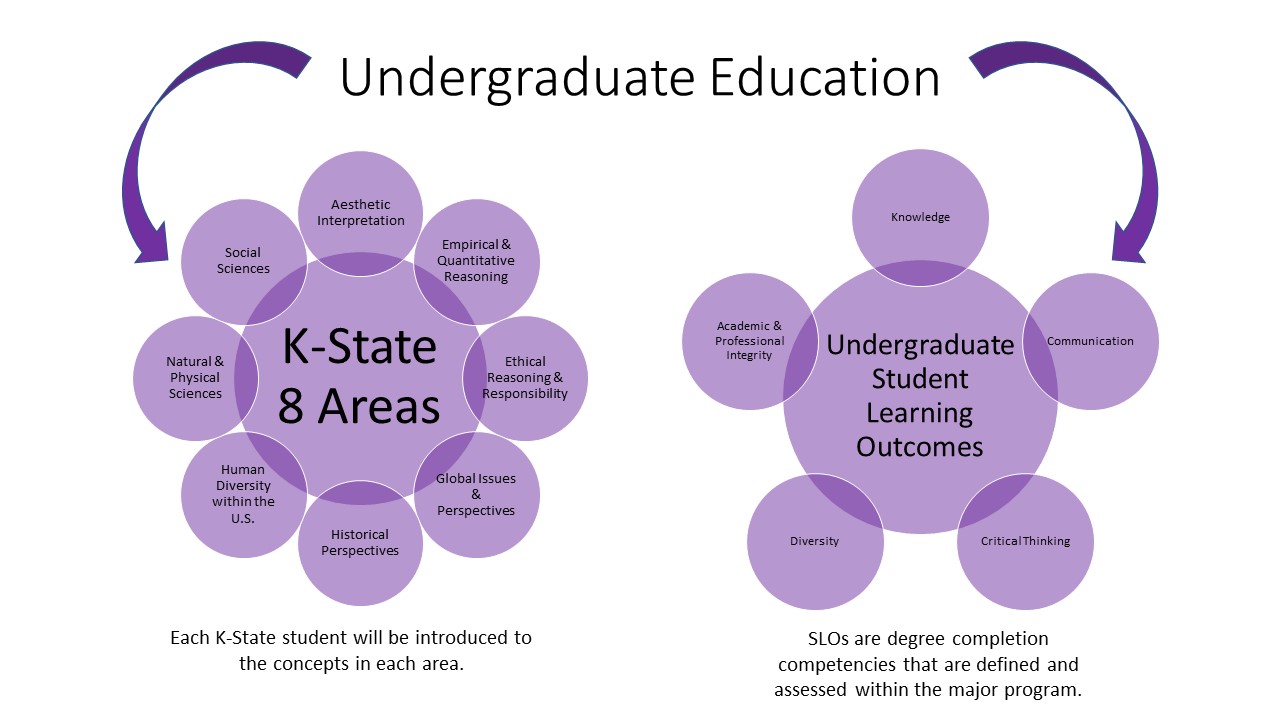K-State 8
Starting in fall of 2024: K-State will be moving to the K-State Core.K-State 8 General Education program comprised of a depth and breadth of knowledge and skills. A student's depth of knowledge intended for undergraduate general education is explored and assessed through our Undergraduate Learning Outcomes.
K-State 8 helps students widen their perspectives, explore new subjects and build critical and analytical thinking skills.
K-State 8 Areas
Student Resources
Each student must successfully complete credit-bearing courses/experiences to cover all of the K-State 8 areas. A minimum of four different course prefixes (e.g., AGEC, MATH, FSHS) must be represented in the fulfillment of the K-State 8 requirements.
